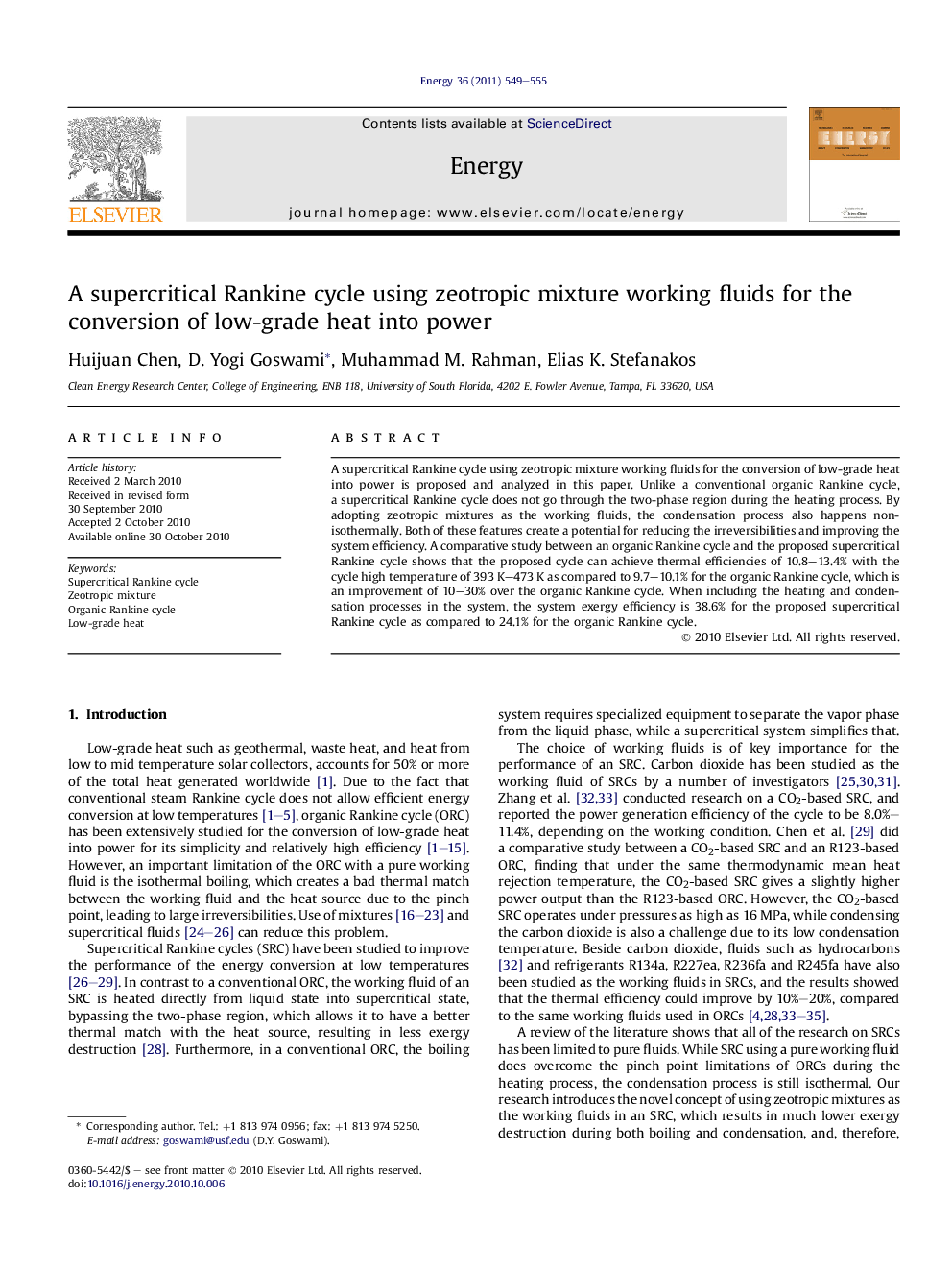| Article ID | Journal | Published Year | Pages | File Type |
|---|---|---|---|---|
| 1734789 | Energy | 2011 | 7 Pages |
A supercritical Rankine cycle using zeotropic mixture working fluids for the conversion of low-grade heat into power is proposed and analyzed in this paper. Unlike a conventional organic Rankine cycle, a supercritical Rankine cycle does not go through the two-phase region during the heating process. By adopting zeotropic mixtures as the working fluids, the condensation process also happens non-isothermally. Both of these features create a potential for reducing the irreversibilities and improving the system efficiency. A comparative study between an organic Rankine cycle and the proposed supercritical Rankine cycle shows that the proposed cycle can achieve thermal efficiencies of 10.8–13.4% with the cycle high temperature of 393 K–473 K as compared to 9.7–10.1% for the organic Rankine cycle, which is an improvement of 10–30% over the organic Rankine cycle. When including the heating and condensation processes in the system, the system exergy efficiency is 38.6% for the proposed supercritical Rankine cycle as compared to 24.1% for the organic Rankine cycle.
